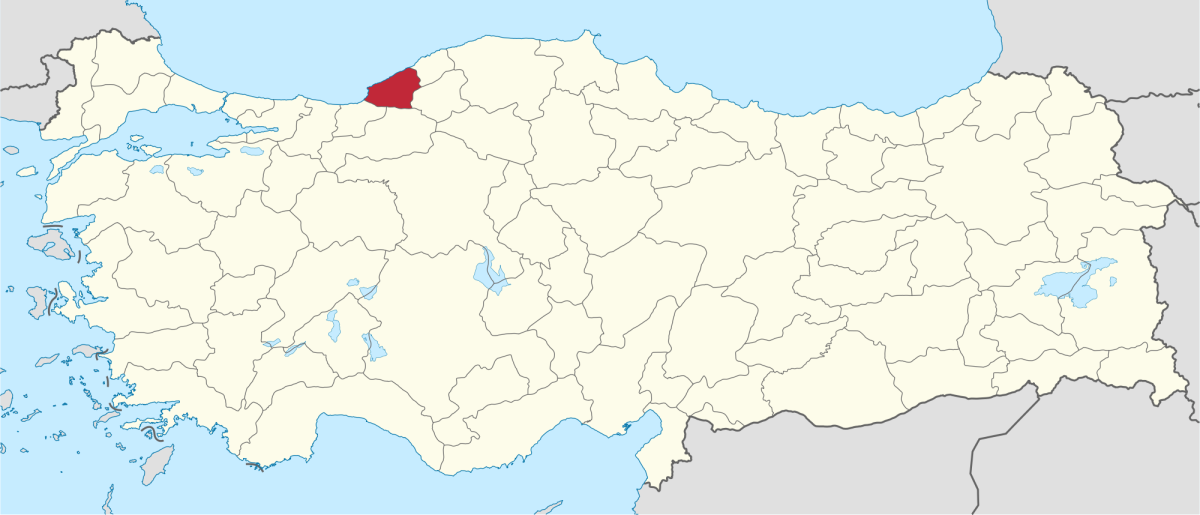Support strong Canadian climate journalism for 2025
People in the heart of Turkey’s coal country are demanding a fossil fuel-free future as the G20 summit gets underway in Antalya.
Residents of the coal city of Zonguldak and the surrounding region are protesting against the high levels of local air pollution and resulting ill effects on human health — the result of two coal power plants in the nearby town of Çatalağzı. The crisis is set to deepen if the Turkish government approves construction of a further 14 new coal power plants slated for the Zonguldak area, which includes 78 km of Black Sea coastline.

“The local people are confronted with serious health problems, primarily with cancer. If the planned thermal power stations are actually constructed, the region will no longer be a habitable place,” said Kadir Orhan on behalf of the Liveable Zonguldak Platorm.
During his speech, Orhan said that coal power plants and their greenhouse gas emissions are a major contributor to climate change, as well as causing regional air and water pollution that harm human health.
“The G20 countries are those who are primarily responsible for the climate injustice in the global world, where inequalities are constantly deepening,” said Orhan.
He was joined by Efe Baysal from Turkey’s Yuva Association, who said that G20 countries are responsible for 76 per cent of global greenhouse gas emissions.
“That’s why, as we give support to our friends in Zonguldak for a future without coal, we also say to G20 leaders that, we are watching you; we don’t want words but actions; and mobilise for climate before it is too late,” said Baysal.
Despite such protests, fossil fuel development in Turkey is set to skyrocket as the government in Ankara is handing out more tax breaks for coal power than any other OECD nation. This could potentially increase its greenhouse gas emissions by 94 per cent over the next 15 years, according to a report released last week by the Overseas Development Institute and Oil Change International.
"Continuing to fund the fossil fuel industry today is like accelerating towards a wall that we can clearly see. G20 leaders need to slow down and turn us around before we hit climate disaster," said Stephen Kretzmann, director of Oil Change International.
Changing course on climate
As Turkey doubles down on fossil fuels, other nations are stepping up to combat global warming ahead of the Paris climate talks set to start on Nov. 30.
Already, Brazilian president Dilma Rousseff has pledged to slash her country’s emissions by 37 per cent from 2005 levels by 2025, and to increase protection for Brazil's forests.
Her country joins India, whose government is rolling out a crash program to ramp up renewable energy production fivefold by 2020 and cut its emission intensity— the amount of CO2 production divided by GDP—by 25 per cent.
China is also set to roll out a national carbon cap-and-trade program, which will bring it into line with the U.S.’s recently announced Clean Power Plan to cut emissions 32 per cent by 2030.
Meanwhile, in Canada
After 10 years of former prime minister Stephen Harper's focus on exploiting Canadian oil, gas, and coal reserves, Canada is starting to face up to the threat of climate change.
In 2013, the government of Ontario shuttered its last remaining coal-fired power plants in 2013, cutting greenhouse gas emissions and drastically improving air quality in that province. The switch has been partly enabled by Ontario's reliance on nuclear power, which makes up 60 per cent of its electricity mix—a controversial energy source now being targeted by the Ontario Clean Air Alliance.
It was during the Harper years that Canadian provinces rolled out initiatives such as carbon pricing programs and invested in renewable energy infrastructure as part of a steady shift towards a low-carbon economy.
On a federal level, the new Liberal government has promised to invest $20 billion over 10 years on greener infrastructure, as well as issue "green bonds" to fund environmentally friendly energy projects. In addition, the Liberals pledged during the federal election campaign to phase out subsidies for Canada’s oil sands and set national targets for slashing emissions, while allowing provinces flexibility to set their own reduction targets.
But Canada still has no national emissions reduction target specific to the upcoming Paris climate talks.




Comments